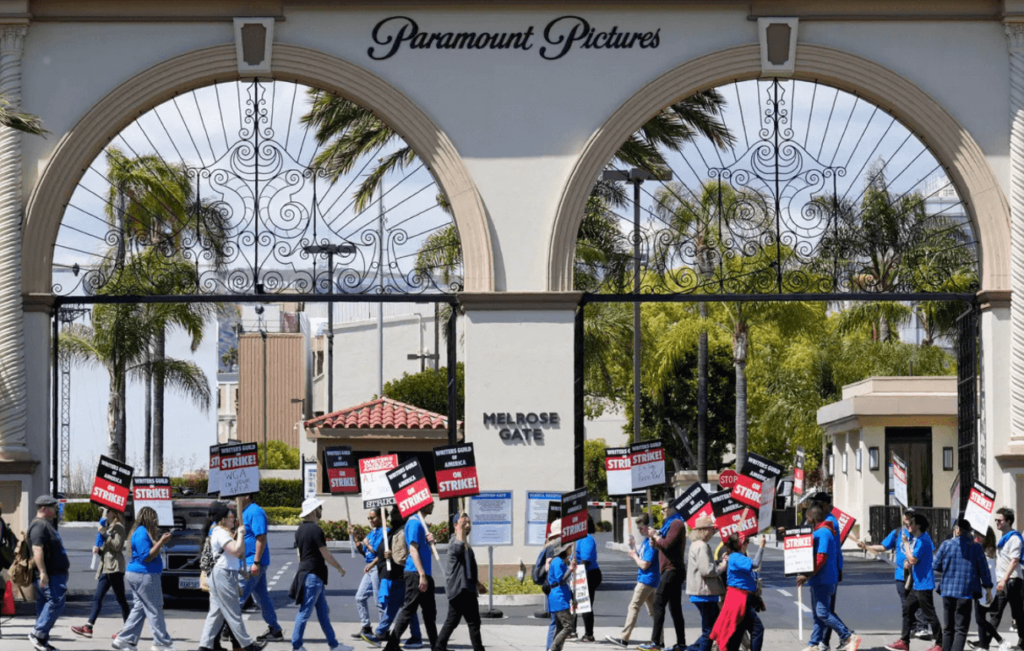
The Writers Guild of America (WGA) is taking a stand and demanding fair pay after contract negotiations failed with the Alliance of Motion Picture and Television Producers (AMPTP) over the past few weeks.
As a result, several television series, films in development, specials and variety shows will be affected. Late-night shows, such as The Tonight Show Starring Jimmy Fallon, Jimmy Kimmel Live!, and The Late Show with Stephen Colbert, are among the first of programming content to feel the impact due to these shows being heavily dependent on writers to create daily content.
While writers join the picket lines in front of major studios, networks, streaming services, and production hubs, the distribution constructs of Hollywood are relying on reruns and talks of reverting to unscripted programming amid an influx of cancellations. In their fight for fair pay, WGA is receiving support from fellow unions, including DGA and SAG-AFTRA, both of whom may possibly be on strike come this summer when their contracts expire on May 10 and June 7, respectively.
The WGA expressed the grievances of its members just before the strike ignited after 11:59 p.m. on Monday (May 1). The union called out the “gig economy” nature of the industry that tended to treat the writer workforce as a “freelance profession,” denying guaranteed employment or cutting wages via day rates.

Another issue lies in the profit split from streamer revenues. The added distribution options and exhibition channels of streaming platforms have become an additional source of potential and income enabled content to receive more exposure on a wider scale, but writers have been excluded from those potential earnings derived from advertisement and subscription-based services.
WGA maintains that this is unfair to the writer because oftentimes content can be released directly to a streaming service, missing the potential profits from conventional sources, such as movie theaters, cable networks, broadcast channels, or satellite.
The union also expressed concern with the future of writers during a time when artificial intelligence technology have threatened to replace them. Technological changes in the industry, along with the surmounting impact of inflation, are the pressing issues energizing the WGA strike.
How long the strike could last is dependent on the willingness of AMPTP to reach a fair negotiation with WGA that, at the minimum, will reinstate the ability of writers to establish careers that support a livable wage in a time of nationwide uncertainty.




You have observed very interesting points! ps decent internet site. “Never take the advice of someone who has not had your kind of trouble.” by Sydney J. Harris.